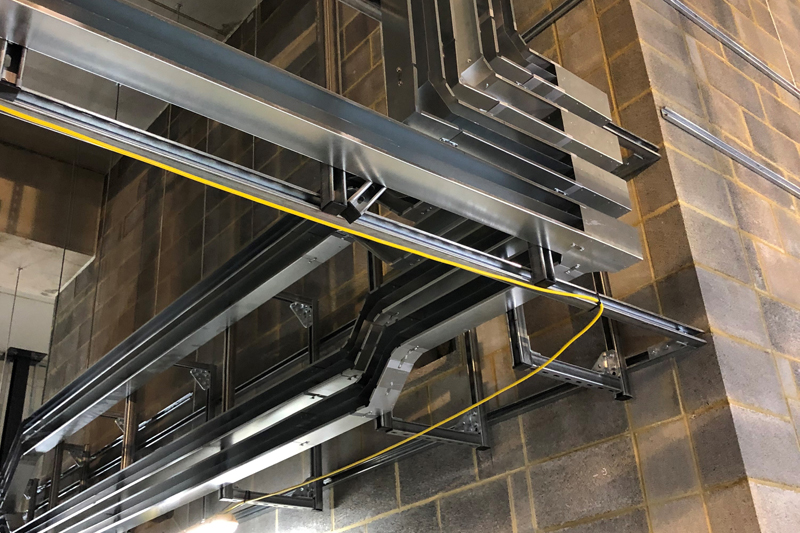Tim Brown, National Sales Manager at cable management specialist, Unitrunk, discusses the benefits of considering installed costs rather than unit price for the whole supply chain.
Budgets, programmes and margins across the construction sector have never been tighter. The consultant’s original electrical services specification is often value engineered before the project reaches site and, facing increasingly squeezed margins, contractors are often forced to save pennies here and there by opting for the cheapest possible solution.
For areas of the specification that are often perceived as commodity items and hidden from view in the service voids – including cable management – this often means contractors will shop around for the cheapest price, rather than the most cost effective deal.
So, what’s the difference? In simple terms, the cheapest price means that the materials – cable tray, cable basket etc. – will cost less to buy, which looks great to the QS pricing up a job because the QS is only concerned with numbers on paper and does not get involved with the challenges of completing the job on time or resourcing the project.
Conversely, the best deal may involve paying a little more for a cable management system with improved design values and more robust fabrication, but if this means the contractor can make a saving on labour costs, avoid the risk of late penalties by keeping the programme on track and deliver a high quality job that could lead to repeat business, the financial gain from using an improved system is often considerable.
The hard sell
For the wholesaler, a sales script centred on a ‘pay more up front to increase profits at final account’ can be difficult to deliver; particularly when contractors’ cash flow is constantly under pressure due to retentions and rising labour costs.
However, we are not talking about huge differences in unit cost here. In fact, when a contractor shops around for the cheapest possible price, they’re likely to be saving pennies rather than pounds. If we compare those marginal gains to the amount that can be saved in labour costs – which typically equate to around 35% of the total price of the job – it’s easy to see how much more a contractor could save by adopting a ‘prime’ or installed cost pricing model for a project, rather than looking for commodity-based savings.
Unitrunk has been working hard to educate contractors in this regard and to provide training in the use of our RIS (Rapid Installation Systems) cable management solutions to demonstrate how labour costs and installation times can be reduced. But this message needs to come from across the sector and it is the wholesaler that is often at the rock face of the industry, advising contractors on product selection and helping them understand the benefits of spending a little more in order to make significant savings on site.
Wholesale advantages
The benefits of a ‘prime’ or installed cost model for electrical installations are not confined to the contractors’ balance sheet at final account; they can also boost the profits and sales potential of wholesalers too.
A unit price-based model means that purchasing decisions become a race to the bottom as everyone looks to reduce the cost of materials. This benefits no one: not the manufacturer or the wholesaler who both have to minimise their margins in order to compete for volume, and certainly not the end user who gets the lowest possible quality product for the same price as a higher quality, better designed and less labour-intensive alternative.
On the other hand, a wholesaler that challenges a lowest price approach to product selection from the contractor has an opportunity to upsell on product while building valuable customer relationships by adding value with advice on systems that will help the contractor save labour costs on the project and remain within both budget and programme.
Think differently
Labour costs have increased considerably, particularly in major cities where record levels of construction activity are creating high demand for skills, resulting in labour shortages that are pushing up costs. With Brexit on the horizon and the prospect of a reduced skills base, the cost of skilled labour looks set to challenge the electrical contracting market still further over the coming years.
Sourcing systems that offer faster, simpler installation, thereby reducing labour costs and time on site, provides a viable way to overcome competition for skills and labour cost uncertainty and the wholesaler can play a vital role in guiding contractors to think differently for the benefit of the whole supply chain.
To learn about RIS and other cable management solutions from Unitrunk, visit: www.unitrunk.co.uk






